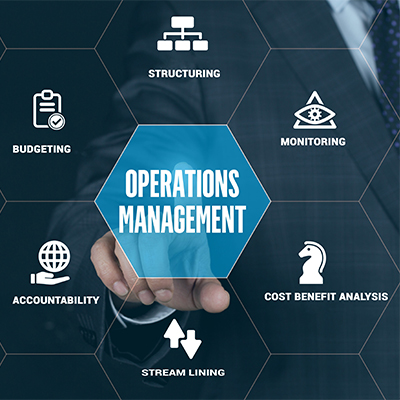Organizational Preparedness for COVID-19
COVID-19 is an infectious disease caused by the newly discovered coronavirus that causes illnesses such as the common cold to severe respiratory illnesses. People can catch the virus through small droplets from the nose or mouth when the affected person coughs or exhales. The disease is known to have more effect on older people and people with pre-existing medical conditions than other people. Countries around the world are working on developing a vaccine and taking precautionary measures by educating their population and even taking stern actions such as community isolation and travel ban.
Companies and individuals are also equally responsible for the safekeeping of others for which preventive measures need to be adopted to avoid contamination. Companies like Google have established a COVID-19 fund that enables all temporary staff, globally to take paid leave if they show potential symptoms. Amazon announced that it will be offering unlimited sick leave for those who tested positive for COVID-19.
Likewise, companies in Nepal are establishing health screening by checking the temperature of employees before entering office premises and allowing work from home option to those showing early mild symptoms. We drafted this blog to share the knowledge we have gathered through our desk-research and our approach to help other Nepali Startups and SMEs to be prepared.
Recommended Measures
In the light of current circumstances, it is important to maintain effective communication between team members and educate everyone regarding viral infection. Besides, good communication, companies should also provision masks & sanitizers and temperature taking could be incorporated in order to detect early symptoms.
With regards to planning and responding to the coronavirus outbreak, the Centers for Disease Control and Prevention (CDC), USA has prepared guidelines on safe practices for businesses and employers. This guideline is mainly focused on social distancing and maintaining proper hygiene. Some recommended strategies companies can adopt are:
- Ensuring sick leave policies are flexible that permits employees to stay at home to take care of themselves or their family members.
- Encouraging employees having acute respiratory illnesses to stay at home. Any employee showing early symptoms should notify their supervisors and stay at home.
- Employees showing signs of any symptoms or becoming sick upon arrival at the office should be separated from the rest of the employees and sent home immediately.
- Placing posters highlighting cough & sneeze etiquette and hand hygiene in workplace areas to educate employees.
- Providing adequate soap, water and alcohol-based hand sanitizers in multiple locations in the workplace. Also, guaranteeing adequate supply and stock for the same.
- Cleaning frequently touched workplace areas such as desks, doorknobs and attendance monitoring systems.
- Advising employees who routinely travel to check and test themselves with health officials. At the same time, it is important to minimize travel and use of public vehicles.
Our Initiatives
We at Biruwa Advisors, have also developed policies and practices in response to COVID-19 which is to be adhered by all the team members:
Sick Leave/Work from Home
- If any team member shows any mild symptoms of COVID-19 including cough/sneezing/fever, it is recommended to work from home or take a leave of absence depending upon the situation.
- If any team member is feeling ill, but still able to work, “work from home” should be requested through email.
Travelling and Commuting
- In case of an outbreak, team members are discouraged from using public transportation. Instead, ride sharing apps such as Tootle or Pathao should be used for which the office will reimburse the expenses.
- In-person meetings should be done virtually where possible, especially with non-company parties.
- All work trips and events should be cancelled or postponed until further notice.
General Hygiene
- A hand sanitizer should be placed near the entrance, bio-metric and all the rooms in the office.
- A tissue should be used for coughing/sneezing or the mouth should be covered with a sleeve, preferably into the elbow. The tissue should be discarded properly and hands should be cleaned/sanitized immediately.
- Hands should be washed after entering the office from outside, using the toilet, before and after eating, and after coughing/sneezing into the hands. Hand sanitizers can also be used as an alternative.
- Desk tops, electronic items, light switches, door knobs should be disinfected and cleaned every day.
- The office should be stocked with all the necessary supplies including hand sanitizer, disinfectants, paper towels, toilet paper, liquid soaps, surgical masks and other things as required.
- Touching the face, particularly eyes, nose, and mouth with hands should be avoided to prevent from getting infected.
- It is advised to limit the number of people in a room to four.
All the precautionary measures suggested in this blog should be taken seriously and one should regularly update themselves with the recent developments. However, not all information might be reliable. It is therefore suggested to individuals to follow only those information from reliable sources and discard myths.
SME Loans Made Easy – Nabil Bank
Nabil Bank in partnership with UKaid Sakchyam – Access to Finance Program has recently introduced the “Nabil Sajilo Express Karja” (NSEK), a Small and Medium Enterprise (SME) lending product that uses a credit scoring model to determine the creditworthiness of an individual and allows customers to get loan approval within 35 hours. With this, eligible SMEs can receive loans from NPR 15 lakhs to NPR 75 lakhs at an interest rate based on their respective credit scores. This service is an upgrade to the bank’s previous loan facility for SME businesses called “Nabil Sajilo Karja” which allows eligible businesses to draw a loan up to NPR 1.5 crore.
Why NSEK?
With the launch of NSEK, Nabil Bank has taken a step towards improving access to finance for SMEs in Nepal. Eligible SMEs can capitalize on this opportunity and reap benefits from the lending product that includes the following benefits:
- Use of credit scoring model which utilizes a combination of statistical analysis and expert judgement performed by lenders to speedily calculate the probable risk in the business that helps in decision making and pricing loans
- Interest Rate up to 10.50% per annum (fixed for 1 year and based on credit score)
- Loan Size from NPR 15 Lakhs to NPR 75 Lakhs
- Loan approval within 35 working hours with additional 25 hours for security documents execution
- Free issuance of credit card to the key person (limit of NPR 50,000)
- Free Monthly Bank Statement delivery through email
- Free transaction alerts through SMS
- NPR 3 lakh worth of 13 critical illness insurance coverage through Nabil Care*
- NPR 10 lakh of accidental insurance coverage and NPR 75,000 on death by any cause from personal account*
- Conditions applied*
How to apply for the NSEK?
In order to apply for a loan with NSEK, you can visit Nabil Bank’s website and download the application form.
Based on the information in Nabil Bank’s website, interested individuals need the following documents along with the application form:
| Individual Documents | Official Documents | Financial Documents |
|---|---|---|
| 1. Citizenship Certificate 2. Net Worth Statement | 1. MOA, AOA 2. Registration Certificate 3. Valuation Report (if available) 4. Tax Clearance Certificate (in case of existing business) 5. PAN/ VAT certificate 6. Resolution of partners/ BOD for availing: (Banking facilities, authorize loan operation and mortgage, provide undertaking and corporate guarantee) 7. Bank Statement of present bank account 8. Document related to credit facilities availing at present (if availing loan from another bank and if available) | In case of existing business: Financial Statements (Two year audited and/ or three years projection) Tax Clearance Certificate (Compulsory) Business Plan (if prepared) In Case of Startups: Projected Financials for 3 years Business Plan (Compulsory) |
This blog is based entirely on the information provided by Nabil Bank Ltd. on its official website. For more information, please visit Nabil Bank’s website or contact your nearest branch.
If required, Biruwa Advisors can support you in preparing business plan for your startup or existing business.
Government Funds: Loan Support for Entrepreneurs in Nepal (FY 2075/76)
For each Fiscal Year (FY), the Government of Nepal (GoN) sets sectoral priorities in its federal budget. The current government policies are focused towards the promotion of entrepreneurship as it is an important aspect for the sustainable development of a country. Taking this into account, budget has been segregated for subsidizing business loans in order to encourage entrepreneurship, create employment and increase domestic production in Nepal.
For the FY 2075/76 (2018/19), the government, in line with the Integrated Working Procedure for Subsidised Credit 2018, has announced plans to provide interest subsidy on loans for various programmes, including youth self-employment, women entrepreneurship, self-employment for returnee migrants, upliftment of underprivileged community and agriculture and livestock promotion.
Any Nepali citizen above 18 years of age having Personal Account Number (PAN) and not listed as a ‘defaulter’ in any Bank and Financial Institutions (BFIs) can apply for the loan facility, according to the procedures published by the Ministry of Finance (MoF). The term of the loan facility is up to five years and is available at all types of BFIs – commercial banks, development banks, finance companies and micro-finance institutions. The actual size of the loan and instalment is decided by the respective BFIs.
Educated Youth Self-Employment Loan
In order to encourage youths with higher education to start their own businesses, Educated Youth Self-Employment Loan allows youths below 40 years to obtain loan against collateral of their academic certificates.
- Loan Size: up to NPR 0.7 million
- Interest Subsidy: 5% interest subsidy
- Priority Areas: The loan can be taken for agriculture, poultry, irrigation, agricultural tools and machines, forest development and promotion of grazing land as well as land development and conservation
- Special Considerations: The criteria to receive this loan entails the person to hold a university degree, obtained at least 7-day training provided by the government institutions like the Council for Technical Education and Vocational Training (CTEVT) and Cottage and Small Enterprise Office/Committee, Skill Development Training Centre and submission of a brief proposal of the enterprise including how the subsidized loan will be utilized.
Note:
BFIs extending the concessional loan facility to the youth cannot charge more than an additional 2% interest to the grant provided by the government, and they are not allowed to charge other fees except the interest on the loan.
Women Entrepreneurship Loan
This loan scheme was initiated with the motive to fulfill the financial requirements of women in order to encourage them to start a business venture. It allows women to take loan against group guarantee.
- Loan Size: up to NPR 1.5 million
- Interest Subsidy: 6% interest subsidy
- Priority Areas: Not specified
- Special Considerations: To obtain the loan, a brief proposal for enterprise operation should be submitted. Where loan is provided to a group, the group should consist of a minimum of 5 members belonging to different families.
Youth Returned from Foreign Employment Project Loan
This loan was introduced by the government to retain migrant returnees so that they can utilize the skills and experience they have gained abroad. This initiative has received an encouraging response with more and more workers applying for the financial assistance introduced to engage them in occupations within the country. Within a month, nearly 3,000 youths who are experienced in foreign jobs applied for this loan since the launch of the scheme.
- Loan Size: up to NPR 1 million
- Interest Subsidy: 5% interest subsidy
- Priority Areas: Not specified
- Special Considerations: Migrant workers who have returned to the country within the past three years after staying abroad for at least six months can apply for the loan based on certification of their skills so that they can start a relevant business. For this, a detailed business plan should be submitted that clearly mentions how the enterprise would operate, the number of people to be involved in the business, and how the business would utilize their own skills.
Commercial Agriculture and Livestock Loan
This scheme was introduced by the government to address the problem of rising unemployment and manpower exodus from the country by encouraging youths to take up farming, as well as make the country self-sufficient in food production.
This loan can be provided against collateral of the same land used for agro or livestock undertaking or crops. For credit up to NPR 1 million, loans can be issued based on group guarantee.
- Loan Size: up to NPR 70 million
- Interest Subsidy: 5% interest subsidy
- Priority Areas: The scheme applies to loans used to produce, process, store and distribute vegetables, fruits, seeds, fish, herbs, mushrooms, dairy items, ostriches, turkeys, ducks, sugarcane, coffee, tea, cardamom, ginger, turmeric, jaitun, sunflower, allo, lokta, barley, buckwheat, and silam seeds. Interest subsidy will also cover loans extended to floriculture and beekeeping businesses, livestock and poultry, slaughterhouses as well as businesses related to storage, processing and distribution of meat items.
- Special Considerations: Individuals seeking commercial agriculture and livestock loan should submit a brief proposal of enterprise operation and utilisation of the loan facility. If the project is above NPR 1 million a Detailed Project Report (DPR) of the enterprise should be submitted to the bank.
Note:
BFIs are not allowed to add more than 5% interest on top of the interest subsidy while fixing the interest rate i.e. maximum 10% total interest rate. Loans exceeding NPR 50 million should be approved by a seven-member Central Coordination and Monitoring Committee formed under Nepal Rastra Bank’s (NRB’s) deputy governor who overlooks the banking sector.
Dalit Community Enterprise Development Loan
This loan scheme was initiated to meet the financial requirements of the youth under Dalit Community to start business for modernizing and promoting the traditional skill and occupation of the Dalit Community. The loan can be obtained under collective guarantee.
- Loan Size: up to NPR 1 million
- Interest Subsidy: 5% interest subsidy
- Priority Areas: Not specified
- Special Considerations: The recipient of the loan should belong to the Dalit Community and provide a recommendation from Rural Municipality (Gaunpalika) or Municipality (Nagarpalika) regarding their proof of belonging to the Dalit Caste. Additionally, a brief proposal for enterprise operation should also be submitted to the BFI. In case, where loan is secured to a group, the group should have a minimum of 5 members, each belonging to a Dalit Caste from different Dalit families.
The information in this blog is obtained from various sources including government budget speech (FY 2075/76) and newspaper articles by the author. The loan procedure may vary according to each bank. Respective bank liaison officer should be consulted for more details.
PAN Registration in Nepal for Individuals
A quick and easy guide for PAN registration in Nepal.
According to the new rule of the Government of Nepal, beginning from fiscal 2019-20, all salaried workers, including both government and private firms have to compulsorily obtain Permanent Account Number (PAN).
The reason for implementing this rule is to track revenue leakages. By making PAN mandatory, the government will be able to track the actual amount of tax that an individual has been paying out of his or her earnings and whether salary expenses as recorded in the accounting system of the employer are correct or not. All employers have to record Tax Deducted at Source (TDS) in the respective accounts of their employees and in case they do not own a PAN, then the government does not validate the employer’s payment of salaries to its employees.
With this new rule in place, people are hurrying to get their PAN registered. However, many are unaware of the process entailing the PAN registration and some even don’t know how and where it can be done. To get this problem sorted, we have actually tried and tested the easiest and fastest method for PAN registration and obtaining your PAN.
Follow these simple steps for your PAN registration in no time:
- Go to the website of Inland Revenue Department: www.ird.gov.np
- Scroll down and click on the “Tax-Payer Portal” link.
- On the left-hand side click on Registration (PAN, VAT, EXCISE)
- Click on the “+” sign to expand the vertical menu.
- Now, click on Application for Registration
- Fill out all the details and choose the IRD office located in your area in the Verifying Offices section.
- Press the OK button and you will be given the Submission Number. (Note submission number for future references)
- Press on “Continue” button.
- Now, fill out all your personal details.
- At the end, click on the “Save” button.
- Click on the “Print” button to get a copy of the submitted application form.
- Take the printed copy to the IRD office located in your area.
- The IRD office will then verify your details and provide you a PAN card which is generally expected to take around one day.
Important considerations
- The PAN Card is free of cost.
- You need to fill out the form in Nepali language. You can use Google Unicode for better assistance.
- You may send any authorized person to submit the application form and to fetch the PAN Card on your behalf. However, an authorization letter is required for the process.
Making Private Sector Engagement Effective in Nepal
In recent years, both the government and the development partners in Nepal have realized the importance of private sector partners in attaining development targets stated in Sustainable Development Goals (SDGs). Major development agencies like USAID and DFID have implemented multi-year, multi-million-dollar projects to support the growth of the private sector in the country. Various interactions and programs have been conducted to encourage better engagement from the private sector in development initiatives.
However, the question still remains about whether such programs have been truly successful in aligning the goals of the private sector to those of the government or the development agencies and ultimately SDGs. As Biruwa Advisors has served as a technical partner and consulting agency in several of the programs for Private Sector Development, it sees the need for more effective engagements and precise interventions to truly make such programs work in Nepal.
USAID recently came out with its Private Sector Engagement Policy, where it states that “private-sector engagement is fundamental to our goal to end the need for foreign assistance.” While this is a goal worth striving for, the way such engagement-oriented projects are carried out has often resulted in the outputs not matching its original objectives.
Through our work, Biruwa Advisors has outlined the following simple steps to overcome some of the challenges that we see in the private sector engagement projects in Nepal:
Engage and Align Goals: Governments and development agencies need to interact with potential private sector partners to understand their needs and motivations while attempting to identify shared goals where meaningful partnerships can thrive. Before any project is designed, necessary stakeholder interactions need to take place not just in boardrooms in Kathmandu, but also with potential program partners and beneficiaries in rural areas, for whom the programs are designed.
Create Necessary Enabling Environment: Private sector-oriented interventions require the necessary enabling environment like adequate government policies, access to finance and technical assistance for the projects to achieve its objectives. Due to the agendas that development organizations are guided by, the comprehensiveness of business facets is often not addressed. With organizations targeting only certain business support requirement, they are not being able to address business and management issues holistically. The failure to address holistic support for businesses mean unsatisfactory development results at the end.
Evaluate Program Beneficiaries and Tailor Interventions: Development programs often have the tendency to assume that all program beneficiaries are in the same stage of business growth and tend to provide interventions without taking time to understand individual project beneficiaries. This can sometimes lead to program beneficiaries not getting the support that they truly require. Thus, development projects should take the time to study each individual beneficiary and attempt to tailor assistance based on their needs.
Pilot Programs at a Smaller Scale before Full-Scale Implementation: Too often development programs have lofty goals and program interventions are designed to maximize impact. However, as with any program design, many assumptions are made regarding how the stakeholders or beneficiaries will react to the interventions. In several cases, development projects do not bring about desired results and yet fail to adapt to market realities. This is also escalated by the changing market needs and demands as most of the projects are multi-year. Thus, piloting the interventions at a smaller scale would test theories and allow for the implementing agencies to make necessary programmatic changes where necessary before intervening at a full-scale.
Need to Mobilize and Support Local Government Bodies: With the outset of federalism in the country, the local government has been delegated with more power and authority. They play a prominent role in developing policies and making decisions at the local level. Any program that is directed towards local development requires acceptance and support from the local body. Therefore, if development programs could be designed in a way that mobilizes and supports local government bodies then program implementation could be carried out more efficiently and effectively. As Biruwa has witnessed that the majority of the local bodies want to attract private companies and want to benefit their communities, they are clueless about planning and execution of such activities. If development organizations can support such local bodies, it will create a lasting impact in private sector development at the local level setting them as a role model for others to follow.
Use of Team Members and Project Partners who have Understanding of the Private Sector:
It is not uncommon that development programs are filled with development professionals with little exposure to the private sector. As a result, many programs are designed without truly understanding the needs and motivations of the private sector which leads to implementation becoming problematic. Thus, adequate resources in the team who have an understanding of such programs can improve program results.
Nepal’s economy is fledgling and recent federalization of government bodies has meant that there are many changes in how the economy functions. To build a thriving private sector that can help achieve targeted development goals, the government and development partners have to effectively design programs and ensure that implementation of the programs addresses the needs and motivations of the private sector.
Top 5 tips for Entrepreneurs to Manage Operations as they Scale up
A lot of entrepreneurs in Nepal tend to get anxious and hesitant when it comes to expanding their business. It may be because of the considerable amount of planning and strategizing required, or the risk of using resources without getting any results. Why work on something if it is not broken is another mindset prevalent here. This is a common issue found among entrepreneurs which, if not addressed on time can lead to long-term stagnation and lack of growth in business activities of the startup.
However, these problems can be tackled by managing the operational activities of the business. A well-functioning operational system is a critical criterion and a huge contributor for business growth.
Biruwa Advisors has been providing operational management support to a number of businesses facing such problems. Based on our experience, we are listing out top 5 tips for operations management during scale up.
Structuring your Business
Most family-run and small-scale businesses lack a formal structure and operations are carried out based on the interest and priorities of parties involved. This results in gaps that can potentially lead to miscommunication, workflow complexity and delegation problems. It is highly probable for the organization to fall apart, if more work load is added into the existing structure during expansion. Successful scaling-up is thus, heavily reliant on the way the organization is structured.
Establishing a formal organizational structure gives a clear picture of the roles and responsibilities to the team members. Similarly, it helps to have a well-structured reporting system which can monitor new additions to operations and also adapt to create new positions as needed. This also allows the managers to shift focus from day to day fire-fighting to strategic level decision making.
Budgeting
Budgeting is something most of us know is a must but very few of us actually end up doing. If you ever wanted to save up to buy something expensive, then you may have planned to control spending and avoid unnecessary costs. Similarly, in a business environment, budgeting assists in operational and financial monitoring and control by providing an estimate and limit for expenses for different activities.
The insight into the expenditures allows a business to target and predict feasible goals. These goals need to be based on your target to scale up your business. It also helps you to compare the goals and expectations with actual performance during execution which is part of the next topic.
Monitoring
Monitoring system helps the management to keep track of all the activities of the business and compare them against the initial plan. For sustainable expansion of business, a clear picture of what is actually occurring at operational level is a prerequisite to avoid problems in the future. Inadequate monitoring of operational activities leads to errors and deviations going unnoticed in the short term and creating huge problems in the long run.
Through regular monitoring of key operational units, anomalies as well as opportunities are identified in the system. The output from these indications can help the business in reviewing their growth strategies.
Streamlining Business Processes
The large volume of activities and processes involved in running a business can get managers to lose track of their priorities which, delays them from streamlining their operations. In a lot of cases, they are busy in firefighting than focusing on growth. This results in redundant and expendable business processes going unnoticed in their organizations leading to stagnant business activity as well inefficient utilization of resources.
Streamlined business operations make the business more compact and simpler to manage. Scaling up strategies become much easier to implement as you can easily replicate the nature of current operations to the new ones.
Cost Benefit Analysis (CBA)
CBA helps managers to take better decisions through quantitative analysis on why a decision is superior to any other alternatives. CBA helps you to take decisions which have better benefit for your business. It is more rational than impulsive decisions which may have tempted the entrepreneur.
Getting a bargain on a property lease at a busy commercial intersection may tempt you to open up a new branch of your business. However, cost of logistics or even the unavailability of backup electricity in the property could raise the cost of opening the new branch over the benefits you intend to gain from it.
While scaling up, you will have to decide between many alternatives. With CBA at your arsenal, this process can be more easily executed.
Operations are core components of every business, so improving its management and control is integral for scaling up any business. We wish you luck for this exciting phase of entrepreneurship.
If you want to share your experience of scaling up or are seeking our assistance in this area, please feel free to get in touch with us.
Impact of Federalism on Nepalese Businesses
The Constitution of Nepal 2015 formally declared the country as a “Federal Democratic Republic”, meaning that the country is now divided into three tiers of government namely federal, provincial and local. This diffusion of power has delegated more authority to provincial and local government thereby helping to solve the problem of Kathmandu centrism. However, it might still take a few more years to implement federalism at a full-fledged scale. Since the country is in an infant stage of the federalist structure, all the policies, rules and regulations are not clear yet. Once the federal structure is implemented properly, slowly, the confusions will become clearer, hopefully resulting in a conducive business environment. Nevertheless, the opportunities and challenges that come along with it should be taken into consideration, especially by businesses so that they can tap into the opportunities to reap the benefits and overcome challenges effectively.
Wider Market
The capital is flooded with businesses that provide basic facilities such as schools and hospitals to entertainment services such as cinema halls and restaurants. International franchises have also not entered markets outside the valley due to the high concentration of population in Kathmandu. However, with the outset of federalism, currently, a centralized population in the capital is likely to disperse outside the valley. This is something that businesses should consider as markets in other regions of Nepal is expected to surge. Taking this into account, it would be a good strategy for businesses to strengthen their supply chain, distribution and presence in markets outside the valley at an earlier stage as it will be relatively easier to penetrate the market than later when the competition is higher.
Unclear Taxation Policies
The government has not yet clearly outlined the policies regarding taxation. Due to this, the state and local government have been interpreting the constitutional provisions and levying taxes as they seem fit without considering the problems faced by businesses and entrepreneurs. In many areas, the government has raised property tax, tourism tax, local resource utilization tax and imposed unnecessary fees and royalties on businesses. Thus, businesses have to be careful and ensure that they are not being double taxed. Although the lawmakers are still in the process to clear ambiguities concerning taxation laws, businesses need to keep in mind that the central government is primarily responsible for collection of major taxes such as customs, VAT, excise duties and income taxes whereas the state and local government collects revenues from vehicle tax, property tax, business tax, entertainment tax, tourism fee and other local taxes.
Businesses also need to consider the rate of taxes that are imposed in various states. Due to the differentiation in tax rates, the price of services may vary affecting competition in the market. Similarly, in the absence of effective tax mechanism, problems may arise in free delivery of services from one state to another. If the government decides to create tariff and non-tariff barriers on interstate delivery of services, businesses will face challenges based on pricing, inter-state competition, and profitability.
Ease of Doing Business
The latest statistics of World Bank-2019 ranks Nepal 110 among 190 economies in the ease of doing business. The concern now is whether the new federal structure will add another layer of bureaucracy or facilitate entrepreneurs and businesses. On a positive note, under the federal structure, business registration might become easier for entrepreneurs if the government allows registration to be done under their respective states. A very good practice can be learned from our neighboring country India where the procedure for business registration has been made simple through online registration. If such kind of system can be implemented in Nepal as well then it could reduce the cost, time and effort of the business.
However, this is only possible after the government sorts their internal matters first, regarding the clear distinction of roles and responsibilities among the three tiers of government. Due to such unclarities, the businesses have been imposed with double-taxation, high royalty fees, and administrative hassles. For instance, recent news stated the local government’s pressure on NGOs to be registered at municipalities to continue their activities in local federal units. If this trend persists, then the impact might soon be felt among businesses disallowing them to operate their business until they are registered at the local level. Thus, clear roles and responsibilities of the provincial and local authorities should be defined by resolving the loopholes that currently exist in the system.
State and Local Market-Specific Priority Sectors
The government at the provincial level is currently working on a five-year periodic plan incorporating a separate chapter for each province to address their specific needs. The periodic plan aims to make full utilization of human capital, expansion of accessible and modern infrastructure, improved production and productivity, a decent standard of living all accumulating in creating a civilized society. Moreover, various other local level programs are also being implemented for the effective utilization of local resources and service delivery to its citizens. These programs include Local Governance and Community Development Programme which is being executed under the Ministry of Federal Affairs and General Administration. Similarly, the government of Nepal with support from the Asian Development Bank is aiming to improve the urban services in eight municipalities namely Godawari, Bhimdatta, Biratnagar, Birgunj, Dhangadhi, Shuklaphanta, Nepalgunj and Siddharthanagar in the Terai Region of Nepal through planning, infrastructure investments, and institutional strengthening. In order to support these programs, the government is seeking assistance from various players including private sectors.
This comes as a piece of good news for businesses as they can now explore and invest in new markets besides the prominent ones. Moreover, in order to attract investments, the provincial government might assign specific priority sectors within the province by offering support schemes such as cash subsidies and tax benefits to businesses. This, in turn, generates healthy competition among states to improve their laws and policies creating a promising environment for businesses. In this case, businesses will have the choice to enter those provinces that are providing laws and policies that best suit their business mechanism or states that have the availability of resources required for their business operation. For instance, province no. 6 and 7 carry huge potential for hydropower, tourism, agriculture and herbal products. So, service businesses such as hotels, restaurants and other hospitality services will have an advantage in these regions. Likewise, there are greater efforts directed towards upgrading Province no. 2 from the poorest category through the special plan for its growth and development. Businesses should, therefore, keep an eye out for opportunities in these areas.
Conclusion
These are some of the major impacts that Nepalese businesses may encounter as a result of federalism. It might appear like a lot of challenges to deal with but with proper information and strategy, businesses can reap benefits from the new policies. With a higher level of power attributed to the local level, municipalities are seeking support from various private players for local development in areas such as health, education, road construction, and waste management among others. This serves as the perfect opportunity for businesses to collaborate with municipalities in their development plan. As entrepreneurs, it should be their flair to find problems disguised as opportunities and thus, should be in a constant search for it since the business scenario in Nepal might still look hazy for another few years while federalism is still at the seed stage.
How to Deal with Entrepreneurial Stress
Note: If you’re looking for an article to tell you that stress can be avoided. This isn’t it.
An entrepreneur can be defined as someone who takes on the burden of setting up a business, carrying the responsibility of it by taking personal and financial risks in hopes of profit.
The last little bit of the definition is key. Should this not be met, for the purposes of this article and perhaps in life, we should refrain from referring to them with the title. It is a most empowering and respectable role to fulfill in that it requires one to have a slew of qualities in order to succeed; qualities that some people may never possess in their entire lives because it puts them in the direct line of fire of man’s mortal enemy: stress.
Why it is so is fairly obvious, a business, especially a startup is much like a child that needs to be taken care of; except worse. Endless needs must be met before even the smallest hint of profit is realized, countless hours must be put in for the smallest improvements and the figurative blood sweat and tears are realized through sleepless nights, stressful days and personal sacrifices.
To top it all off, doing what’s necessary is not exactly our forté as species. We have been designed evolutionarily to do two things; survive and reproduce and as long as that happens, everything should be okay.
However, having evolved, we want more than just that (at least one should hope so), and this “natural” state of being that used to be our penultimate goal is now but a basic requirement alongside the myriad other things we seek to accomplish and achieve; giving birth to what is referred to as our “comfort zone” – something that sounds so lazy we hate to admit it is our natural state of being, it is also the very something out of which no growth occurs because growth involves change and change involves uncertainty and what does uncertainty breed in us?
You guessed it. Stress.
The interesting thing is, scientifically, stress is defined roughly as “any factor that disrupts our natural equilibrium.” So, it is unsurprising that pushing past this “comfort zone”, in order to foster growth is what causes stress. Thus, as an entrepreneur who is trying to grow the figurative business “child”, stress is not only unavoidable but is in fact necessary.
One could ramble on for another hour about the negative effects that stress has on individuals, but it is rather pointless, focusing on the negative aspect of a non-negotiable is as helpful as repeatedly checking your empty fridge hoping for something to show up. It won’t; unless you do something about it.
So, to help our budding entrepreneurs better manage this bitter, unavoidable necessity, let’s talk about a few strategies that could help.
Make friends with your stressors
Seriously buy them a drink or something. As obvious as it sounds, one way to look at stressors is as signals. You see, stress is the body’s way of telling you when something isn’t right, physiologically AND mentally. If something is bothering you, it usually has a reason. Look into it, identify it and if it needs to be fixed, then fix it. It really can be that simple. You see the satisfaction we seek lies in the work we avoid. Just. Get. It. Done.
Take some time to think about why you’re stressed out
If you missed the memo on the last point, here’s your reminder. Thinking about what is stressing you out is the Advil to your headache. Writing your thoughts down can help immensely in gaining clarity and thus allows you to break down your problem into smaller bite-sized pieces that are easier to chew on and eventually “swallow”, plus, it helps reduce the stress you’re feeling because now you’re actually doing something about it rather than simply allowing it to bother you.
Take Action
Need I say more? Many a time, the stress we face is an accumulation of stagnation. Analysis by paralysis as some like to call it. We’re so caught up in making sure we do the right thing that we usually end up doing nothing, essentially putting you on the hamster wheel where your mind is running frantically, draining you of precious resources that could better be utilized elsewhere; but you yourself are exactly where you started. This is not to say that you should be doing just about anything that comes to your mind—please don’t—but when solving a problem—don’t meander about your decision so much that you don’t end up making one.
Understand that it is a part of the process
This is where it gets philosophical, if you’ve only been looking at words thus far, this is where you want to start REALLY thinking about things. Any time we change things we WILL face discomfort, there is really no two ways about it. Anything we want in life requires us to suffer to some extent. Do you want a meal? You need to prepare it. Do you want a rocking six pack? You have to slave away for hours every day at the gym for it. Like I said at the start nothing grows in the comfort zone so as an entrepreneur trying to literally change your life through the growth of a business, there is no avoiding discomfort. The expectation that it is not so is oftentimes what messes it up for us.
Most people today (especially the “want-repreneurs”) are under the impression that negative state of mind we face when things really suck are unnatural. That it is not okay to sometimes feel like nothing is going right, to feel as though we are failures; to maybe even doubt ourselves. But the reality is, everyone feels that way at times; yes, even Superman. What separates the successful from the unsuccessful as you have hopefully noticed; is what they do when they face these obstacles. They aren’t born different. They just see things differently. You see the same hot water that softens the potato hardens the egg; learn to be an egg as stupid as it sounds. Let these challenges change you, be willing to suffer and it’s a promise that the rewards you reap will be well worth the effort.








